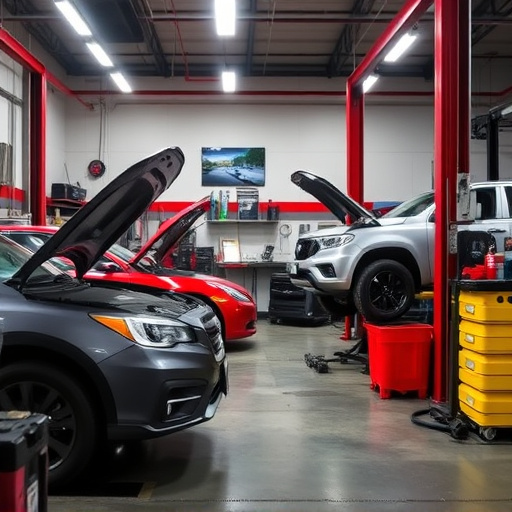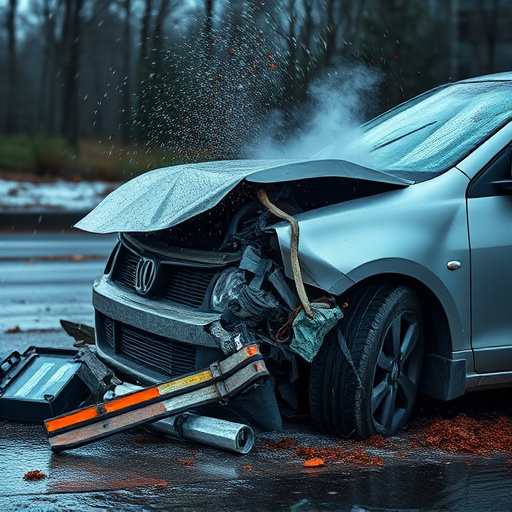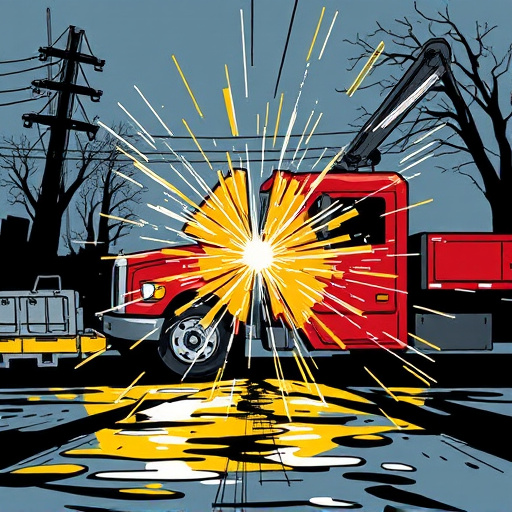Customer safety assurance is a cornerstone in the automotive service industry, demonstrating dedication to protecting clients and their vehicles during repairs. By adhering to stringent standards and protocols, workshops ensure meticulous care in every step from initial assessment to final completion. Certifications, instrumental in building trust, validate businesses' adherence to industry best practices and legal requirements, fostering long-term customer loyalty through peace of mind. Effective implementation involves establishing clear standards, regular updates, robust training frameworks, continuous education, and recertification to enhance customer safety assurance.
In today’s competitive market, establishing customer safety assurance is paramount for businesses. Certifications play a pivotal role in demonstrating a commitment to quality and safety standards, fostering trust among consumers. This article explores the significance of customer safety assurance and its tangible impact on brand reputation. We delve into how certifications can serve as a game-changer, offering strategic insights for effective implementation. Understanding these elements is crucial for businesses aiming to thrive in an increasingly regulated environment.
- Understanding Customer Safety Assurance and its Significance
- The Impact of Certifications on Building Trust with Customers
- Strategies for Implementing Certificating Programs Effectively
Understanding Customer Safety Assurance and its Significance

Customer safety assurance is a cornerstone in the automotive service industry, emphasizing the measures taken to protect both customers and their vehicles during repairs. It involves implementing rigorous standards and protocols to ensure that every process, from assessment to completion, is conducted with the utmost care and precision. This commitment to safety isn’t just about adhering to regulations; it’s about fostering trust between businesses and their clients.
In today’s competitive market, where services like paintless dent repair and fender repair are in high demand following collisions, establishing robust customer safety assurance practices sets apart reputable workshops from the rest. For instance, collision repair experts utilize advanced techniques such as precision alignment and specialized tools to fix damages, all while prioritizing the minimal disruption of a vehicle’s original finish. These efforts not only guarantee the structural integrity of the vehicle but also reassure customers that their investment is in capable hands.
The Impact of Certifications on Building Trust with Customers

Certifications play a pivotal role in establishing trust between businesses and their customers, especially in industries where safety is paramount, like car repair services and auto detailing. When consumers see that a company holds recognized certifications, they gain confidence in the business’s expertise and commitment to quality standards. This trust becomes a cornerstone of long-term customer loyalty.
In the context of car repair services or even car restoration and auto detailing, certifications ensure customers that their vehicles are in capable hands. These credentials validate the skills and knowledge of technicians, assuring clients that any repairs or enhancements meet industry best practices. By associating themselves with these standards, businesses signal to their target audience that they prioritize customer safety assurance, fostering a sense of security and peace of mind for those relying on their services.
Strategies for Implementing Certificating Programs Effectively

To implement certifying programs effectively, businesses must first define clear standards and criteria for their certifications. This involves meticulous research into industry best practices, legal requirements, and customer expectations regarding customer safety assurance. For instance, in car restoration or dent removal services, precise techniques and materials must be standardized to guarantee both effectiveness and safety. Regular updates to these standards should reflect technological advancements and evolving safety norms.
Next, a robust training framework is essential. Training programs should equip employees with the knowledge and skills to adhere to established standards, using tools like practical demonstrations, hands-on exercises, and comprehensive manuals. Continuous education and recertification processes ensure that staff stay updated on the latest techniques in car scratch repair or other services, enhancing both their proficiency and customer safety assurance.
Certifications play a pivotal role in establishing customer safety assurance, fostering trust, and enhancing brand reputation. By implementing effective certifying programs, businesses can demonstrate their commitment to quality, adherence to standards, and prioritization of consumer well-being. This not only boosts customer confidence but also positions companies as leaders in their industry, setting benchmarks for others to follow. Investing in certifications is a strategic move that pays dividends in building long-term relationships based on trust and satisfaction.













